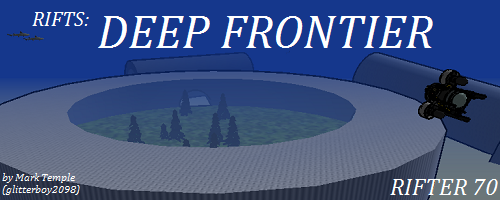"What is steel next to the hand that wields it?" -Snake King in Conan
"That depends on the smith!" -Anonymous Dwarf Blacksmith
Back in the day, the most awesome weapon a Viking could aspire to own was an Ulfberht sword, a blade made from crucible steel of a quality that wouldn't be replicated in Europe for the better part of another thousand years. Many have survived to this day, and they have inspired me to put forth this challenge:
Come up with the ultimate book-legal, non-magical, 1-handed melee weapon. I'd like to see just how much difference a weapon can make in the game.
Rules:
+You can use any type of metal that could plausibly be found in Palladium (the metal CAN be intrinsically magical, just not enchanted).
+You can use any canon smith in the Palladium world (or create a book-legal character up to 15th level to make it).
+You can use any canon hand-to-hand weapon design found in the Palladium world (to include the Compendium of Weapons, Armor, and Castles.
+You can use any smithing tools found in the Palladium world (the tools CAN be magical)
-No enchantments can be put into the weapon.
-No blessings can be laid upon the weapon.
-No runes, wards, or mystical symbols can be inscribed into the weapon.
-Melee weapons only.
Judging Criteria: The entry with the highest number of points will be the winner. Points will be awarded as follows:
+Each dice of damage gets as many points as an average roll, rounded down (1D4 is 2, 1D6 is 3, 1D10 is 5, and so forth)
+Each bonus to a specific move counts as a point, so +1 to damage = 1 point, while +1 to strike/parry = 2 points.
+Special combat moves that most melee weapons can't do are worth 2 additional points per move.
+Unique beneficial properties (such as coated with silver to fight undead) are worth 1 point per property.
Side-Contest: The following categories of points have no effect whatsoever on the score of any entry. They are cumulative and can be assessed in any arbitrary amount that strikes me as appropriate:
+Rules Lawyer Points will be assessed for making reasoned arguments, justifying your position with canon references (extra points for obscure ones), applying appropriate penalties to your own submission (thus manipulating the judge), changing my mind on scoring, pointing out errors in my scoring, and generally being nit-picky and persuasive.
+Munchkin Points will be assessed for silly shenanigans shamelessly (but futilely) pulled to crank up an entry's score.
+Awesome Points are assessed for entries that stand out as particularly inspiring.

 ) They also charge 4 times the going Dwarven rate. See Eastern Territories, p80 for details.
) They also charge 4 times the going Dwarven rate. See Eastern Territories, p80 for details.
